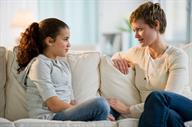Sexual Abuse, Pediatric
Child sexual abuse occurs when a person involves a child or adolescent in sexual activity. Sexual activity includes inappropriate touching and non-touching sexual behavior. Sexual abuse may be committed by:
An adult abusing an adolescent or younger child.
An adolescent abusing a younger child.
A friend or relative, such as an older child who abuses younger family members or friends.
Forced attempted or actual sexual penetration is called sexual assault. Penetration can be vaginal, oral, or anal. Any child can be a victim of sexual abuse or assault. Sexual abuse of any kind is never the fault of the child who is abused.
What are the causes?
There are no specific causes of child sexual abuse, but the following factors may contribute to it:
A poor parent-child relationship.
Poverty.
Lack of education about childhood development.
Substance abuse disorder.
Parent and family problems.
What increases the risk?
This type of abuse is more likely to happen if:
There is a history of abuse in the family.
The sexual abuser was sexually abused.
The abuser and the child have mental health problems.
The child who is abused has an illness.
There is a lot of stress in the household.
What are the signs or symptoms?
There are physical, emotional, and behavioral signs of sexual abuse.
Physical signs of sexual abuse
-
Discomfort and injury to the genitals or to the opening between the buttocks (anus).
-
Frequent urinary tract infections.
-
Unexplained injuries, or injuries that do not match the explanation.
-
An STI (sexually transmitted infection).
-
Pregnancy.
Emotional signs of sexual abuse
-
Unusual sleep problems, including nightmares and bed-wetting.
-
Strong negative reactions to being around a certain person.
-
Avoiding certain places or situations, or being unwilling to attend school.
-
Depressed mood.
-
Withdrawing from friends.
-
Losing interest in activities that the child usually likes.
-
Having less interest in personal hygiene or appearance.
Behavioral signs of sexual abuse
How is this diagnosed?
There are often no external signs that can be used to diagnose sexual abuse in children. Sexual abuse may be recognized by:
How is this treated?

Child sexual abuse may be treated with:
Treatment for any physical injuries.
Preventive treatment for STIs. Emergency birth control (contraceptive) medicines may also be given, if needed.
- Mental health treatment with someone who specializes in treating children who have suffered sexual abuse. Mental health treatment can include:
Trauma-focused therapy.
Cognitive behavioral therapy.
Play therapy for younger children who may be unable to talk about (verbalize) their feelings about the abuse.
Parent–child therapy.
Support groups for children who have been abused, and their families.
Family therapy.
Follow these instructions at home:
Respond with care and attention
-
Do not ignore the problem or blame your child.
-
Be calm and supportive. Do not dismiss what your child is telling you. This is serious.
-
Believe your child and reassure your child that you will take action to make sure that the abuse stops.
Get medical help
If you think or know that your child has just been sexually abused or assaulted:
Safety
Stay away from the area where your child may have been abused. This may involve staying in a shelter or with a friend.
Go with your child to activities in the near future, until you are both feeling safe.
Report suspected or actual abuse or assault to your local authorities, such as law enforcement and the proper children's protective government agency. This can be difficult, particularly if it is a family member, but protecting your child is the most important thing you can do at this time.
Talking to your child

Listen to your child and respect his or her feelings. Your child should not be pressured when talking about the abuse.
Do not ask your child about possible sexual abuse in front of the person who is suspected of doing the abuse.
Sexual abuse is a difficult topic to discuss, so take it slow and let your child take enough time to tell you the story.
Preventing sexual abuse
It is important for your child to feel able to ask questions and bring up concerns. Talk to your child about:
Healthy boundaries. Help your child learn to say "no" and to know that it is okay to speak up if they are uncomfortable.
Appropriate touching. Even very young children should know what is an okay touch and what is not.
Proper names for body parts.
Trusting their gut feelings. Encourage your child to leave or ask for help in a situation that does not feel safe.
Not keeping secrets. Encourage your child to tell you if something happens that makes your child feel uncomfortable or unsafe.
Internet safety. Tell your child that he or she should never give out personal information online. Instruct your child to stay out of online chat rooms or other online forums. Chat rooms that seem safe and even helpful may be used by abusers to find your child or convince your child to meet with them.
General instructions
Find local resources to get more help and support, such as a sexual assault crisis center or professional counselors who specialize in treating children of sexual abuse.
It is often helpful to go to counseling sessions with your child before expecting a child to go on his or her own.
Give over-the-counter and prescription medicines only as told by the health care provider.
Keep all follow-up visits. This is important.
The following organizations provide information and support for dealing with child sexual abuse and assault:
-
You think your child has just been sexually abused.
-
Your child talks about self-harming, harming other people, or has acted on these thoughts.
If you ever feel like your child may hurt himself or herself or others, or if he or she shares thoughts about taking his or her own life, get help right away. You can go to your nearest emergency department or:
-
Call your local emergency services (911 in the U.S.).
-
Call a suicide crisis helpline, such as the National Suicide Prevention Lifeline at 1-800-273-8255 or 988 in the U.S. This is open 24 hours a day in the U.S.
-
Text the Crisis Text Line at 741741 (in the U.S.).
Summary
-
There are physical, emotional, and behavioral signs and symptoms of child sexual abuse.
-
Get medical care as soon as possible for your child and follow-up with counseling as soon as it is reasonable.
-
Stay away from the area where your child may have been abused. This may involve staying in a shelter or with a friend.
-
Any child can be a victim of sexual abuse or assault. Sexual abuse of any kind is never the fault of the child who is abused.
This information is not intended to replace advice given to you by your health care provider. Make sure you discuss any questions you have with your health care provider.
 Child sexual abuse may be treated with:
Child sexual abuse may be treated with: 